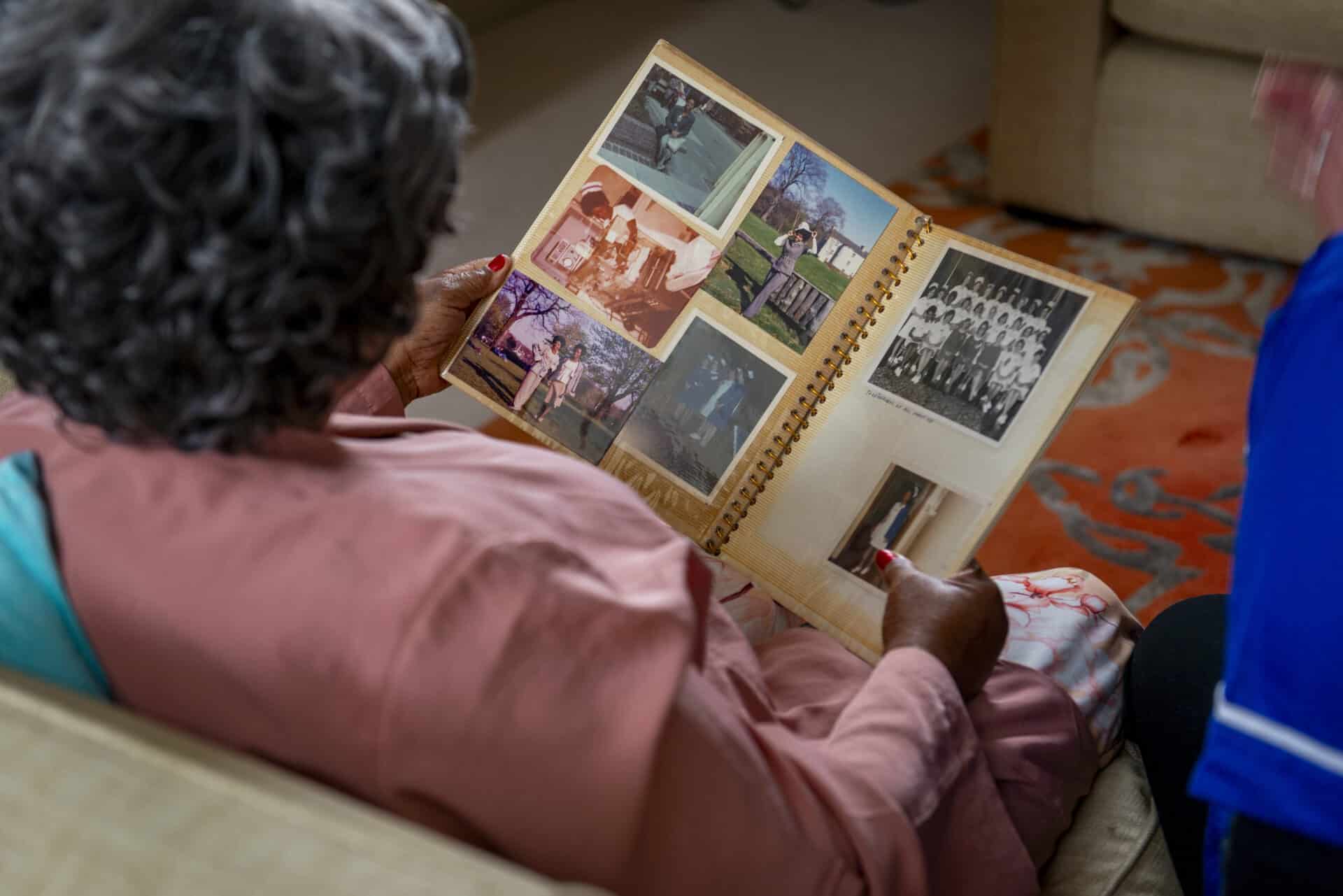How to communicate with somebody that has Dementia.

Communicating in the right way with somebody with Dementia is vital for ensuring both of you feel comfortable and can get the most from that communication. In this article, we look at ways to make communication as easy as possible.
Communicating with someone who has dementia can be a challenging but essential aspect of providing care and support. Dementia affects cognitive functions, including memory, language, and reasoning, making communication more complex.
In this article, we will explore effective strategies for fostering positive and meaningful interactions with individuals who have dementia.
- Establishing a Positive Environment: Creating a positive and comfortable environment is crucial for effective communication with someone with dementia.
- Minimize distractions, such as loud noises or clutter, and ensure good lighting.
- Approach the individual from the front to avoid startling them and maintain eye contact to establish a connection.
- Use Clear and Simple Language. Individuals with dementia may have difficulty processing complex information, so it’s important to use clear and simple language. Speak slowly and distinctly, and avoid using jargon or complicated sentences. Focus on one idea at a time, allowing them sufficient time to process and respond.
- Non-verbal communication plays a significant role in interacting with someone with dementia. Pay attention to your body language, facial expressions, and tone of voice.
- Maintain a calm and reassuring demeanour, and use gestures or touch to convey warmth and support. A gentle touch on the arm or a reassuring hug can help establish a connection.
- Active listening is essential when communicating with someone who has dementia. Give them your full attention and show that you are engaged in the conversation. Respond to their feelings and emotions rather than focusing solely on the words spoken. This demonstrates empathy and helps build trust.
- Be Patient and allow time. Individuals with dementia may take longer to process information and formulate responses. Be patient, avoid rushing them, and allow ample time for them to express themselves. If they struggle to find words, provide gentle prompts or offer alternatives to help them convey their thoughts.
- Encourage expression through Art and Music. Art and music can be powerful tools for communication with individuals with dementia. Encourage creative expression through activities such as drawing, painting, or listening to familiar music. These activities tap into different areas of the brain, providing an alternative means of communication and fostering a sense of joy and connection.
- Use Visual Aids. Visual aids can enhance communication by providing additional cues and prompts. Use simple pictures, drawings, or objects to support verbal communication. For example, you can use a photo album to reminisce about shared experiences or create a visual schedule for daily activities.
- Maintain routine and consistency. Establishing a routine and maintaining consistency in daily activities can help individuals with dementia feel more secure and oriented.
- Consistency in communication approaches, such as using the same gestures or phrases, can provide a sense of familiarity and make interactions more predictable. Be Mindful of Tone and Pitch The tone and pitch of your voice can significantly impact communication. Use a calm and gentle tone, avoiding a confrontational or loud approach. Pay attention to the individual’s response to your tone, adjusting it as needed to create a positive and comfortable atmosphere.
- Validate and Redirect. When someone with dementia expresses thoughts or memories that may not align with reality, it’s essential to validate their feelings rather than correcting them. Redirect the conversation to a more positive or neutral topic, ensuring that the interaction remains respectful and supportive.
Communicating with someone who has dementia requires patience, understanding, and adaptability. By creating a positive environment, using clear language, incorporating non-verbal communication, and embracing various strategies, caregivers and loved ones can enhance their interactions with individuals affected by dementia. Remember that each person is unique, and what works for one individual may not work for another. By being attentive, empathetic, and flexible, you can build meaningful connections and improve the quality of life for those living with dementia. #caremark #homecare #dementia
How can Caremark help with Dementia?
Dementia Care in Guildford & Woking in the Comfort of your own home
Acknowledging the Importance of Comfort and Familiarity for individuals with dementia, our dementia care services in Guildford & Woking prioritise these aspects. Our skilled care assistants are trained in dementia care, providing empathetic assistance within the confines of the individuals’ own homes. From aiding in daily routines to promoting mobility and facilitating cognitive engagement through stimulating activities, our focus is on upholding safety and regularity. Through these efforts, we empower our customers to retain a sense of routine and fulfilment in their lives.
Compassionate and Empathetic Dementia Care in Guildford & Woking
Our individualised approach to dementia care is designed to cater to the distinct requirements and desires of every person. Following a thorough assessment, our team crafts a flexible care strategy that adjusts as the condition advances. Recognising the variability of dementia’s manifestations, our care assistants exhibit adaptable and compassionate responses to shifts in behaviour and memory. Our ultimate aim is to offer care that honours each individual’s identity and life journey.
Relief-Oriented Dementia Care: Strengthening and Uplifting Families
Understanding the emotional and physical challenges of caring for a beloved family member with dementia, we’re here to help. We provide families with helpful resources and guidance, helping them gain a deeper understanding and better coping strategies for dealing with dementia. Our main goal is to offer consistent support and reassurance to families throughout their journey in dementia care.
Dementia care Guildford. Dementia care Woking.
#dementiasupport #elderly #elderlycare #careathome #guildford #woking #alzheimers #alzheimersawareness #alzheimerscare